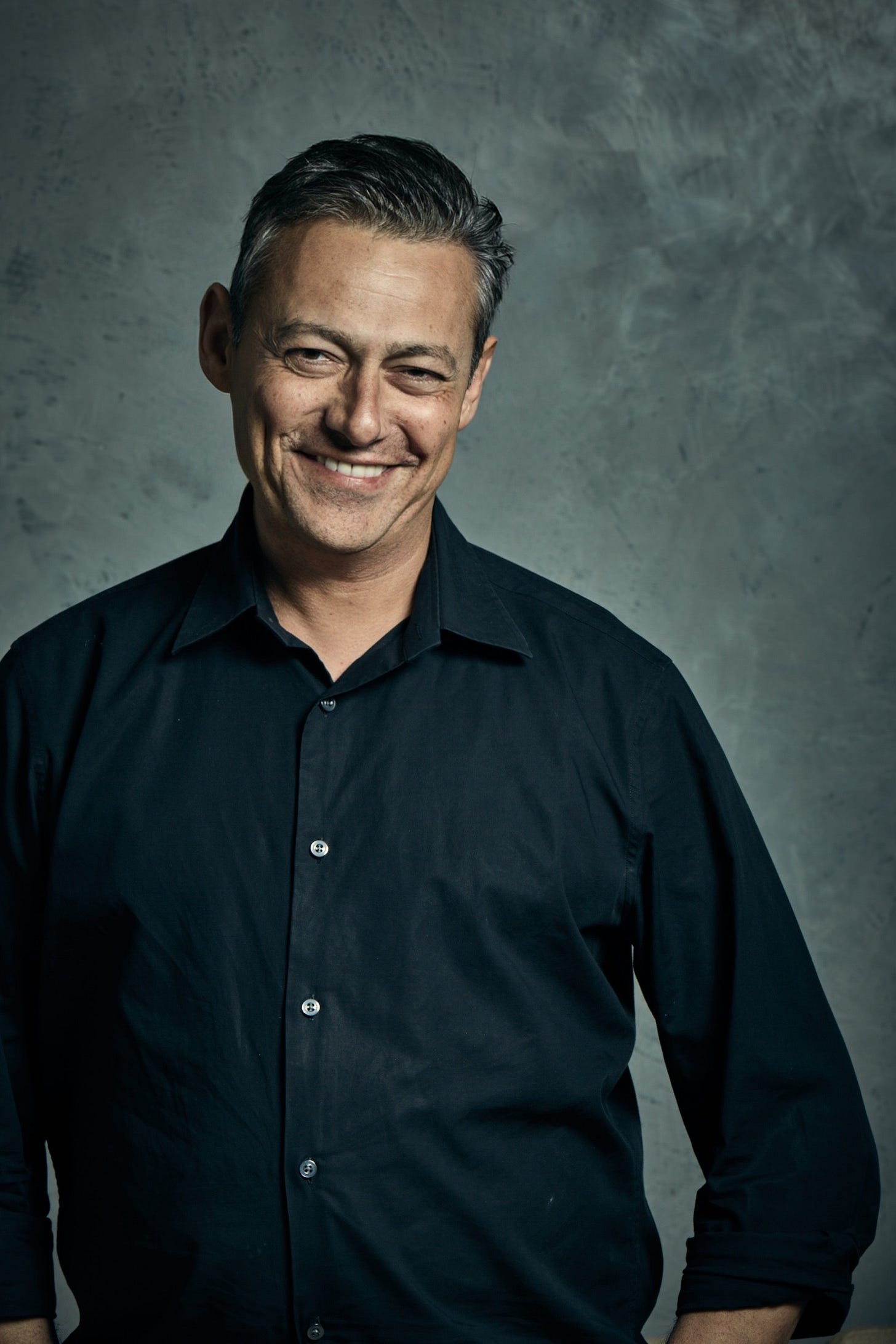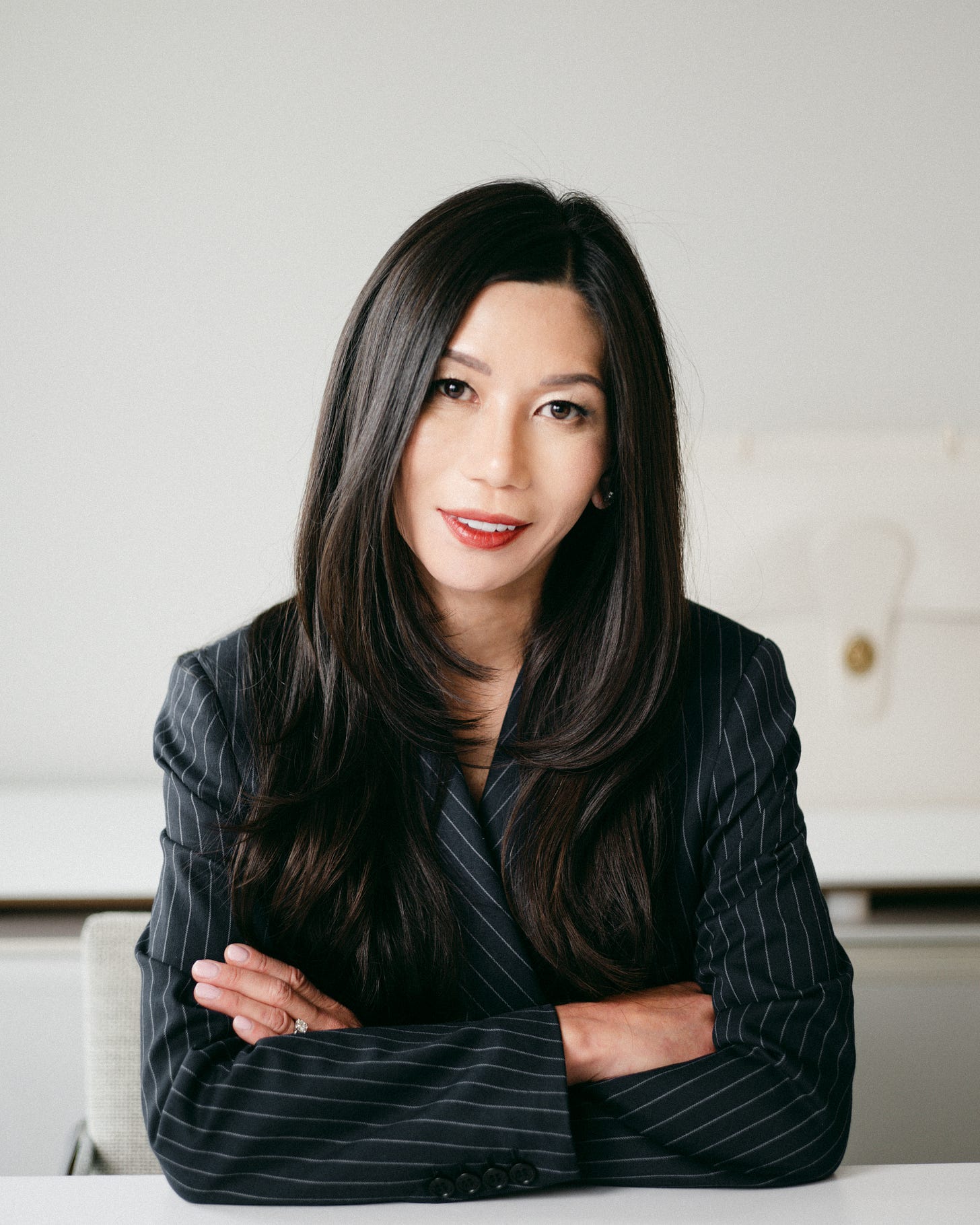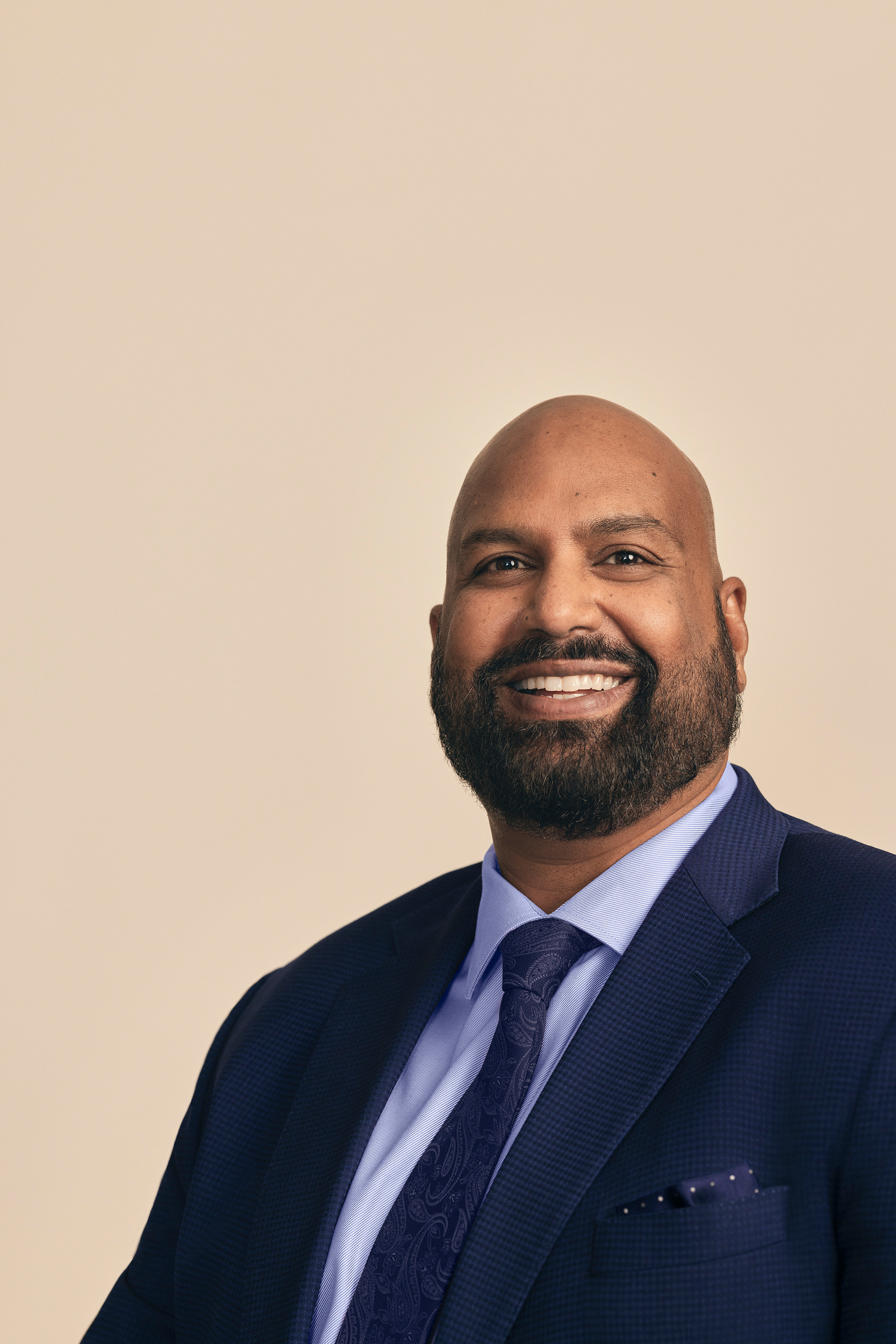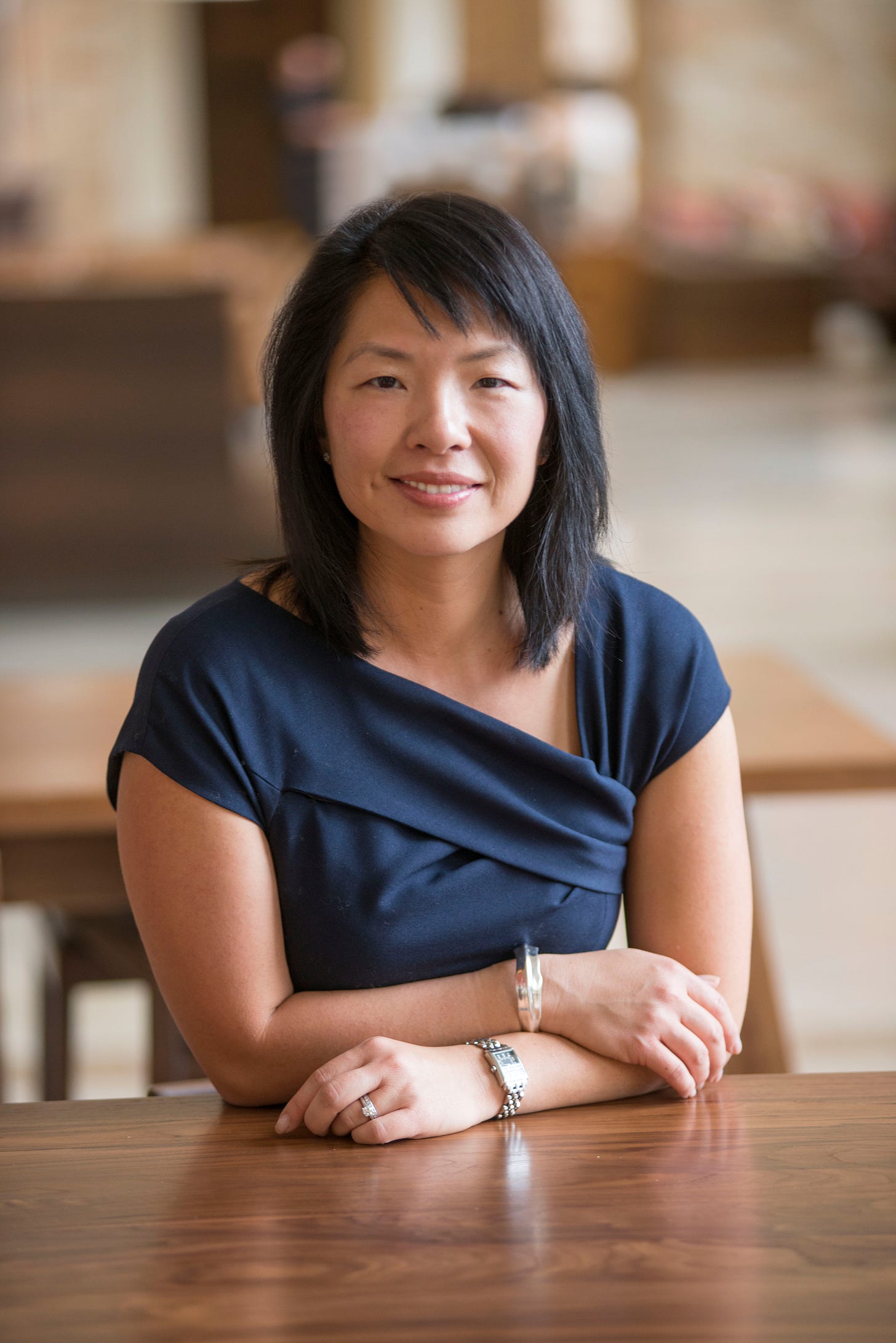Welcome to Renegades, a series spotlighting Asian Pacific leaders and creatives who are carving their own paths and defying stereotypes along the way. In honor of Asian Pacific Heritage Month and our annual A100 List launch, we sat down with not just one, but six of our culture-changing honorees. These newly-crowned Renegades represent a new wave of change, actively shaping the way we see the world and ourselves.
Maer Roshan
Co-Editor-in-Chief, The Hollywood Reporter
What did you want to be when you were growing up, and how does that compare to where you are now?
Luckily, I always have had a pretty firm idea of what I wanted to do with my life. Since I was about nine, I have wanted to be a writer and a journalist. As a child in Iran, I voraciously consumed my parent’s newspapers, magazines, and books, and was especially fascinated by the periodicals that came from America, often with pages torn out by government censors.
You’ve built something that clearly resonates: what core principle has guided your career?
Persistence is the key to anything in life—the ability to recover from and surmount the obstacles and indignities that are an inevitable part of everyone’s journey. Building things is never easy, but it’s easier when you stay focused, committed, and learn from your setbacks. As a journalist, another key principle is to stay curious and open-minded. The world changes quickly, and you can’t properly cover it if you are rigid in your thinking, or are too frozen in your point of view.
What is one piece of conventional wisdom or advice you disagree with, and why?
“Good things come to those who wait.”
Patience is obviously important, but passivity very rarely leads to results. Instead, waiting without action often means missed opportunities. Good things come to those who prepare, pursue, and persist.
Joon Silverstein
Chief Marketing Officer, Coach
What did you want to be when you were growing up and how does that compare to where you are now?
I’ve always been drawn to the question of who we are—and why we are the way we are. And my first dream career was to be a cultural anthropologist.
Growing up as a Korean American, I was constantly navigating the expectations of the different cultures I inhabited—often feeling trapped by stereotypes and rigid norms. Cultural anthropology struck an incredibly personal chord, because it was all about understanding human difference and hence human possibility—and, in the end, how I could envision my own life in a freer way.
As an aspiring cultural anthropologist, I followed that instinct across North Africa and Europe—living with a Sufi brotherhood in Morocco, Berber tribes in the Middle Atlas mountains, and North African immigrant communities in France. Those journeys challenged me to see through the eyes of others—and in doing so, helped me find my own voice.
Today I’m in luxury fashion. But my anthropologist’s mindset is still at the core of what I do. At Coach, our transformation is grounded in human insight—not just what people buy, but what they value, how they live, and the emotional trade-offs they make every day. I believe that when brands engage consumers on a deeper emotional level, we’re able to play a more meaningful role in their lives.
You’ve built something that clearly resonates: what core principle has guided your career?
Throughout my career, I’ve seen myself as a change agent—someone who brings an entrepreneurial lens to every brand and role, whether at Victoria’s Secret, Louis Vuitton, or now Coach. I’m energized by the opportunity to rethink the rules, stretch the boundaries of what a brand can be, and turn vision into action.
Real innovation requires embracing an outsider’s perspective—even as an insider. That mindset has been shaped by my own lived experience as an Asian American—growing up often feeling like an outsider—and sharpened professionally over a decade at Coach, where I’ve moved across functions like digital, sustainability, and marketing without a traditional background in any of them. It’s meant maintaining the curiosity of an outsider while developing the deep institutional knowledge that comes with time.
When I led the launch of Coachtopia, Coach’s circular sub-brand, I approached it like an internal start-up—so we could work not to improve the linear fashion system but to reinvent it. That duality—the ability to think like a challenger while building from within—has been at the heart of how I lead and create.
What keeps you grounded when things move fast at the top?
My children—my 12-year-old son and 6-year-old daughter! When I slow down and see life through their eyes, there’s a simplicity that grounds me. No fear of failure. No pressure to be perfect. Just the joy and courage to try something new without overthinking. It’s refreshing and inspiring—and reminds me to lead from a place of possibility, not perfection.
Rahul Purini
President, Crunchyroll
What did you want to be when you were growing up and how does that compare to where you are now?
Growing up, I wanted to run a chain of luxury hotels—drawn to travel, service, and creating unforgettable experiences for folks from all over the world. Then I got my hands on a computer. Today, I lead Crunchyroll with the same spirit: serving fans, inspiring teams, and building something magical at the intersection of storytelling and technology—just with anime.
What is one piece of conventional wisdom or advice you disagree with, and why?
“Work smarter, not harder.”
Impact doesn’t come from clever shortcuts. Smart without sweat is strategy without traction. The people I admire most do both—they think deeply and push relentlessly.
What keeps you grounded when things move fast at the top?
My kids. Nothing humbles you like solving a strategic issue at 4 p.m., and being roasted by my children for overcooking their mac and cheese at 7 p.m. They don’t care about titles—just if you’re present.
And my team. They’re the daily reminder that leadership isn’t a spotlight—it’s a mirror. When I see them outwork me or call me on my blind spots, I’m reminded: leadership’s about them, not me.
Amy Whang
President, Maybelline New York, Garnier, and essie USA
What did you want to be when you were growing up, and how does that compare to where you are now?
When I was 5, my kindergarten teacher asked our class what we wanted to be when we grew up. There were answers like firefighter, nurse, teacher, etc. My answer? I wanted to be Miss USA. I had watched the televised competition, and was in awe of the beautiful and confident women I saw onstage. In high school, I ended up being runner-up in the Miss Teen NJ competition. I guess it wasn’t my destiny to be Miss USA, but I’ve had the honor to work on some of L’Oreal’s most iconic brands, bringing consumers joy, with beauty products that make them look and feel beautiful and confident, like the women I was in awe of when I was 5.
What’s one failure or setback that actually set the stage for something great in your journey?
I went to college determined to major in finance and work in investment banking. My first semester, I realized it wasn’t for me and changed my major to marketing. Only two companies came to campus to recruit for marketing roles, one of which was L’Oreal. Landing an internship at L’Oreal set the course for me to build a career that brought together my passion for beauty and lifting people up for the last 20 years.
What keeps you grounded when things move fast at the top?
No matter how hectic, no matter how much pressure you may feel at work, remember that business is business. Most things can wait. My number one priority is my family, and the most important thing is that I succeed as a mother and wife.
Jennifer Hsieh
Managing VP & Global Category Leader of Endorsed Brands and Experiences, Marriott International
What did you want to be when you were growing up, and how does that compare to where you are now?
Growing up, I always knew I wanted to do something that studied people. I was a voracious reader—from first-person fiction (where I could become anybody) to People Magazine (where I could binge on pop culture and human interest stories). Fast forward to my current role, I’m still studying people!
I’m a major advocate for Human-Centered Design Thinking to create new brands and experiences for our guests [at Marriott properties]. I love finding that customer insight that launches a new idea and then collaborating with our customers to design an experience that is just as delightful when they travel on vacation with family or attend business meetings.
What is one piece of conventional wisdom or advice you disagree with, and why?
Success is often described as quickly “climbing the career ladder.” I think that’s an outdated and short-term view of building a career that you find fulfilling. Humans spend most of their lives working, so the magic is when you find something you are genuinely interested in and passionate about. Often, that means trying many new things that can mean lateral job moves (vs. a promotion). Nobody wants to find themselves on the top of the wrong ladder.
What keeps you grounded when things move fast at the top?
My team and our core values. When building a strong team, I am mindful to create a good balance of dreamers, makers, operators, analysts and executors. We get aligned on clear roles, goals, and metrics—then the team moves. Once things speed up, we all anchor on our core values—customer first, transparent dialogue, support for each other, and focus on outcomes—as we navigate changes, shifts, and increasing demands.
Neil Ruiz
Head of New Research Initiatives, Pew Research Center
What did you want to be when you were growing up, and how does that compare to where you are now?
When I was growing up, I knew I wanted to do something with numbers. At first, I thought maybe I’d be an accountant, but my college years instilled in me a thirst for learning more about human behavior and our individual experiences. This ultimately led me down the road to become a political economist in the public opinion research industry. I love telling stories about people and collecting the data that illustrates their unique experiences. It has been an honor to follow my passion and curiosity every day at Pew Research Center.
You’ve built something that clearly resonates: what core principle has guided your career?
“Have a clear vision but always be open to opposing viewpoints.” I’ve led teams around the world to provide data and listen to populations that are usually ignored. In many cases, my industry thought many of these populations, such as Asian Americans, were too hard to reach or too complicated to study. My goal is to elevate the voices of populations that aren’t typically represented, and to make the invisible visible, through accurate and unbiased data.
What is one piece of conventional wisdom or advice you disagree with, and why?
There’s a piece “conventional wisdom” that many Asian American immigrant parents teach their children: “Keep your heads down, don’t cause a lot of trouble, and do what you’re told.” Instead, I say this: be respectful of institutions and authority, but don’t be afraid to change them. Creativity and innovative thinking can only happen when you are empowered to be unconventional. You do not always have to take the high road. To have the greatest creative freedom, in many cases you have to take the real road, especially when you are the one laying the dirt and asphalt to pave it.









